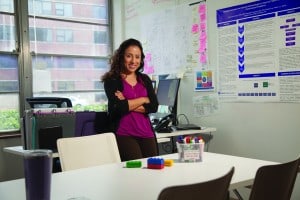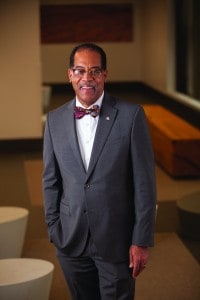Disruptive thinking. Invention. Mending what’s broken. Where would this world be today without entrepreneurs?
Memphis is on the national map for entrepreneurism. We have business incubators and accelerators, music visionaries and artists in all forms.
Memphis also cradles an increasing number of healthcare and medical-treatment innovators who are working to overcome today’s predicament that what used to work in healthcare might not be efficient or effective any longer.

“Innovation requires an agile style of thinking and operating,” says Center for Innovation Director Alejandra Alvarez.
Today’s challenges to patients, healthcare providers and payers – from outdated care models to evolving public policies and untapped technologies – beg for new or refined solutions.
Fortunately, a dose of entrepreneurial problem-solving is being served in Memphis healthcare. Regional One Health’s Center for Innovation is becoming the hub for problem solvers both inside our healthcare system and in external partner organizations.
The Center for Innovation, which is now just over two years old, sits among excellent company in Memphis.
Organizations that serve the business side of healthcare entrepreneurism and innovation in Memphis – for example, Bioworks’ Zeroto510, EPIcenter, and StartCo – are already alive and well in our community.
The emergence of the Center for Innovation brings an important puzzle piece to those partners – a clinical system that is on the frontlines of patient care for virtually every population in our city.
Through partnerships, ideas that could offer improvements for patients and providers become a process of solution development, validating, feedback and iteration.
Case in point, a startup company, Cast21, has partnered with our Center for Innovation to advance its newly approved medical device.
Cast21 was part of the Zeroto510 medical-device startup accelerator, where its idea for an alternative to traditional fiberglass casts and bulky braces came to fruition. After graduating from Zeroto510 and receiving funding from investors, Cast21 needed a clinical setting to serve as an entry portal for the medical device and determine its product value with patients. The partnership between Cast21 and the Center for Innovation emerged – one way that Regional One Health is at the heart of change and patient-care improvements from the inside out.
True with any innovative process, iteration and the willingness to let ideas fail are key. Out of hundreds of ideas, only one might be viable. Innovation is a culture where that’s okay and expected.
“Innovation requires an agile style of thinking and operating,” says Center for Innovation Director Alejandra (Allie) Alvarez. “The best ideas come from validating – numerous rounds of validating and feedback, in fact. In that process, an idea might quickly prove that it can scale and become available to more people or for more uses, or, it might be eliminated. Either answer is fine in an entrepreneurial mindset.”
The entrepreneurial mentality allows for the validating of many ideas with less money and resources. The key is to not spend years in development without ever validating the idea or product with an actual end user. That method is far too expensive and inefficient for an innovative culture.

“As more ideas are tried and new lessons are learned, that innovation reaches out across the community,” says Regional One Health President and CEO Reginald Coopwood, MD.
The beauty of the Center for Innovation is the ability to try, validate and pivot improvements in healthcare delivery until a true clinical value is found.
Regional One Health’s employees are integral, too. Regional One Health’s concept of advancing healthcare to meet our community’s needs began internally with “shark tank” style idea competitions. From that, 90 ideas were submitted and several are in implementation within Regional One Health, both in clinical settings and in operational settings, such as the creation of a “Text to Clean” program that allows any employee to create a janitorial request from their phone.
“It’s all part of creating a culture of innovation that has roots inside our own healthcare system. As more ideas are tried and new lessons are learned, that innovation reaches out across the community,” says Regional One Health President and CEO Reginald Coopwood, MD.
“We plan to play an important role in making more entrepreneurs want to choose Memphis,” continues Dr. Coopwood. “When that happens, our patients, our providers, our businesses and our entire community will benefit.”
Donors can support the game-changing work at the Center for Innovation.
“Angel investing” is a common term in the entrepreneurship world and it means to provide the early-stage funding when a new concept is still being validated and iterated.
Essentially, the Regional One Health Foundation plays the role of angel investor for the most-promising employee and partner ideas that come through the Center for Innovation.
Similar to any start-up organization or invention, making something actually exist takes resources, so philanthropy is crucial to the success of the Center for Innovation. Funding provided by Regional One Health Foundation donors cover salaries for staff, operational expenses, and tools that allow for the validating and further development of viable ideas.
Additional funding is needed for our Center for Innovation to become a hub for incubating start-up partnerships that could benefit Regional One Health patients and patients in healthcare facilities beyond our own.
